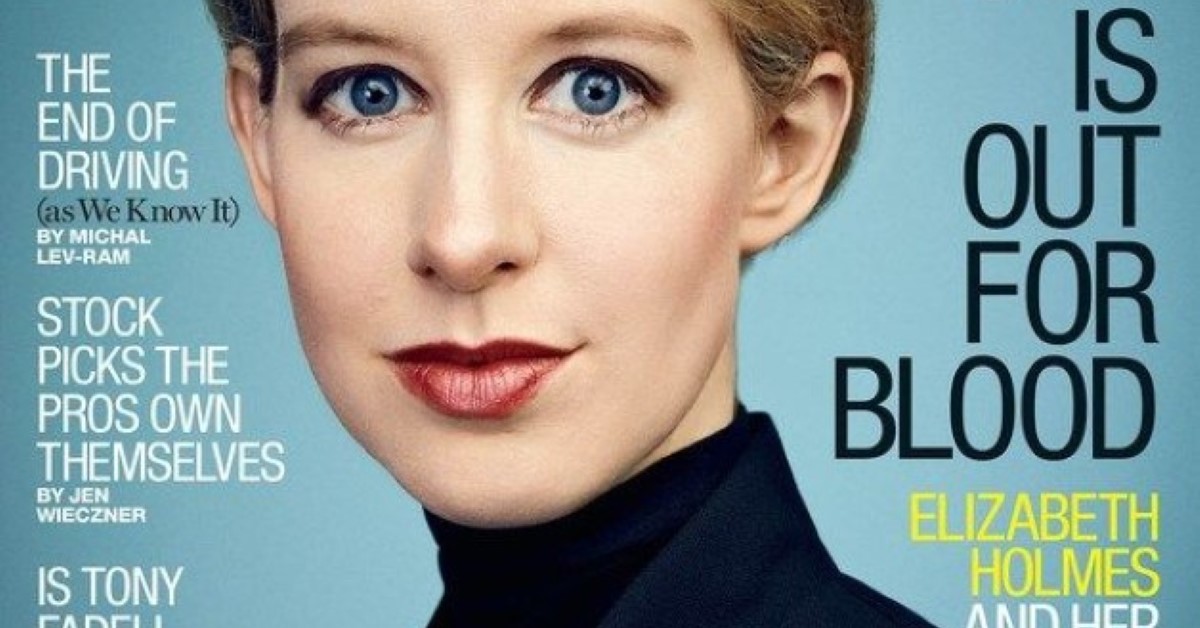Bad Blood: Five Lessons for Startup Founders
As Elizabeth Holmes, the disgraced founder of Theranos, tries to rehabilitate her image and stay out of jail, the story of her meteoric rise and fall keeps reverberating through startup world.
Wall Street Journal reporter John Carreyrou initially broke the story of Theranos’ shady practices in 2015. He later wrote the definitive account of the entire saga in the best seller Bad Blood.
For those familiar with the Theranos story, the book doesn’t provide any new revelations, but it does explain, in sharp detail, the many, and in hindsight, obvious, mistakes Theranos made during its short time as Silicon Valley’s hottest startup.
Here are five lessons startup founders should take from the downfall of Theranos and Elizabeth Holmes as described in Bad Blood.
- Do the damn work: One obvious takeaway from Bad Blood was how far Holmes’s ambition exceeded her willingness to become proficient in her field. She majored in chemical engineering at Stanford, but famously dropped out after two semesters. When presenting to investors and later at conferences and talks with fawning attendees she spoke in airy terms about “changing the world.” This sentiment along with her arresting facial features and cultivated image worked most of the time. But on the rare occasions she pitched to technically competent audiences her charm quickly turned to hostility and the meetings abruptly ended. Of course, Theranos hired scores of technicians with impressive credentials, but Holmes never allowed them the time needed to produce the machine that would fulfill her vision (or even fully investigate whether it was technically possible.)
- Choose your team carefully: Another obvious Bad Blood takeaway is the impossible management structure at Theranos. Holmes ran the startup with her erratic boyfriend and live-in lover Sunny Balwani. The couple apparently kept their relationship secret from the board of directors. Throughout the book, Carreyrou portrays Balwani as a toxic tyrant prone to sudden outbursts who fired people near daily. The poisonous management situation resulted in constant turnover where no one from upper management to low-level technicians was safe from unwarranted tirades. This atmosphere contrasts with the ‘we’re-saving-the-world’ sentiment expressed at company parties and all-hands meetings. Perhaps it would not have mattered in the end, but the unease Balwani’s omnipresence provoked negated any chance Theranos would ever fulfill its mission.
- Never lose sight of the mission: Elizabeth Holmes’s goal was to become famous, she wanted to be the female Steve Jobs—a force of nature whose sheer will could mesmerize crowds and whose ideas could change the lives of billions. In at least one respect, she got her wish. Whilst PhDs slaved away under Sunny Balwani’s tyrannical gaze, Holmes’ star rose. Particularly, after going “live” with the Walgreens partnership, her life seemed to consist of unending talks, glowing profiles, and conferences. Holmes, with a security detail fit for a president, constantly schmoozed VIPs. Celebrity can be intoxicating but unless it’s earned, it’s worthless. A founder’s main duty is to her investors/shareholders. Holmes treated this cohort as an expendable ATM. The Theranos board, despite numerous warnings, also failed to guard shareholders’ interests.
- Don’t lie to people: Fraudsters exist in every industry. But the amount of lies that Holmes told was stunning. She lied about the technology, the reliability of the machines, the use of commercial analyzers, the patents she filed and so on. She and Balwani relied on NDAs, legal threats, and the omnipresent “trade secrets” whenever lies were exposed. The inability to level with anyone including shareholders, employees, media, business partners, regulators, and eventually medial patients was stunning. The mantra ‘fake it until you make it’ popular in Silicon Valley can’t mean blatantly lie to everyone and hope everything works out. The Theranos situation was worse than most because people’s actual lives were at stake, but a clean conscience is good policy for any founder.
- Never run when you’re right. The last lesson applies to everyone who discovered the rampant deceit at Theranos. The media portrayed lab technicians Tyler Schultz and Erika Cheung as the heroes of the story. No doubt their courage in the face of unrelenting bullying by lawyer David Boise and his hatchet team deserves plaudits. But what is striking is how many people stood up to Holmes and Balwani. Holmes fired her CFO immediately when he warned her not to lie to potential investors. A lab manager and medical doctor provided the first proof to Carreyrou that something was awry. One scientist even committed suicide. Outside the company, as well, numerous people refused to be taken in by Holmes’s charm. A consultant hired by Walgreens repeatedly warned the company things did not add up. A regulator held his ground in the face of a four-star general who tried to fast-track Theranos machines to fields of combat. Even people at Theranos’ PR firm tried to warn their superiors. In the end, all these people came out of the affair with their integrity intact.
Will the Theranos debacle change anything? Probably not, larger investors may demand more proof before entrusting millions of dollars to charismatic, messianic founders. But then again maybe they won’t. As hype surrounding crypto reached a fever pitch, VCs lined up to back fraudsters like Sam Bankman-Fried and Do Kwon.
In the end, the human desire to be seen as virtuous combined with the human trait of greed will usually supplant the business need for boring, forensic due diligence. But that doesn’t mean individual startup founders can’t take the lessons of Theranos to heart, particularly if they’d prefer not to share a prison cell with her.
By Jossey PLLC






